my apologies for the delay, I wasn't sure exactly what the missing information was hence why I commented first :).
The Schema
An example of a part of a schema that has arguments:
type Mutation {
register(email: String!, password: String!): Account! @resolver
login(email: String!, password: String!): String! @resolver
}
When such a schema is imported in FaunaDB there will be placeholder functions provided.
The UDF parameters

As you can see all the function does is Abort with the message that the function still has to be implemented. The implementation starts with a Lambda that takes arguments and those arguments have to match what you defined in the resolver.
Query(Lambda(['email', 'password'],
... function body ...
))
Using the arguments is done with Var, that means Var('email') or Var('password') in this case. For example, in my specific case we would use the email that was passed in to get an account by email and use the password to pass on to the Login function which will return a secret (the reason I do the select here is that the return value for a GraphQL resolver has to be a valid GraphQL result (e.g. plain JSON
Query(Lambda(['email', 'password'],
Select(
['secret'],
Login(Match(Index('accountsByEmail'), Var('email')), {
password: Var('password')
})
)
))
Calling the UDF resolver via GraphQL
Finally, how to pass parameters when calling it? That should be clear from the GraphQL playground as it will provide you with the docs and autocompletion. For example, this is what the auto-generated GraphQL docs tell me after my schema import:

Which means we can call it as follows:
mutation CallLogin {
login (
email: "<some email>"
password: "<some pword>"
)
}
Bulk updates
For bulk updates, you can also pass a list of values to the User Defined Function (UDF). Let's say we would want to group a number of accounts together in a specific team via the UI and therefore want to update multiple accounts at the same time.
The mutation in our Schema could look as follows (ID's in GraphQL are similar to Strings)
type Mutation { updateAccounts(accountRefs: [ID]): [ID]! @resolver }
We could then call the mutation by providing in the id's that we receive from FaunaDB (the string, not the Ref in case you are mixing FQL and GraphQL, if you only use GraphQL, don't worry about it).
mutation {
updateAccounts(accountRefs: ["265317328423485952", "265317336075993600"] )
}
Just like before, we will have to fill in the User Defined Function that was generated by FaunaDB. A skeleton function that just takes in the array and returns it would look like:
Query(Lambda(['arr'],
Var('arr')
))
Some people might have seen an easier syntax and would be tempted to use this:
Query(Lambda(arr => arr))
However, this currently does not work with GraphQL when passing in arrays, it's a known issue that will be fixed.
The next step is to actually loop over the array. FQL is not declarative and draws inspiration from functional languages which means you would do that just by using a 'map' or a 'foreach'
Query(Lambda(["accountArray"],
Map(Var("accountArray"),
Lambda("account", Var("account")))
))
We now loop over the list but don't do anything with it yet since we just return the account in the map's body. We will now update the account and just set a value 'teamName' on there. For that we need the Update function which takes a FaunaDB Reference. GraphQL sends us strings and not references so we need to transform these ID strings to a reference with Ref as follows:
Ref(Collection('Account'), Var("account"))
If we put it all together we can add an extra attribute to a list of accounts ids as follows:
Query(Lambda(["accountArray"],
Map(Var("accountArray"),
Lambda("account",
Do(
Update(
Ref(Collection('Account'), Var("account")),
{ data: { teamName: "Awesome live-coders" } }
),
Var("account")
)
)
)
))
At the end of the Map, we just return the ID of the account again with Var("account") in order to return something that is just plain JSON, else we would be returning FaunaDB Refs which are more than just JSON and will not be accepted by the GraphQL call.

Passing in more complex types.
Sometimes you want to pass in more complex types. Let's say we have a simple todo schema.
type Todo {
title: String!
completed: Boolean!
}
And we want to set the completed value of a list of todos with specific titles to true. We can see in the extended schema generated by FaunaDB that there is a TodoInput.

If you see that extended schema you might think, "Hey that's exactly what I need!" but you can't access it when you write your mutations since you do not have that part of the schema at creation time and therefore can't just write:
type Mutation { updateTodos(todos: [TodoInput]): Boolean! @resolver }
As it will return the following error.

However, we can just add it to the schema ourselves. Fauna will just accept that you already wrote it and not override it (make sure that you keep the required fields, else your generated 'createTodo' mutation won't work anymore).
type Todo {
title: String!
completed: Boolean!
}
input TodoInput {
title: String!
completed: Boolean!
}
type Mutation { updateTodos(todos: [TodoInput]): Boolean! @resolver }
Which means that I can now write:
mutation {
updateTodos(todos: [{title: "test", completed: true}])
}
and dive into the FQL function to do things with this input.
Or if you want to include the ID along with data you can define a new type.
input TodoUpdateInput {
id: ID!
title: String!
completed: Boolean!
}
type Mutation { updateTodos(todos: [TodoUpdateInput]): Boolean! @resolver }
Once you get the hang of it and want to learn more about FQL (that's a whole different topic) we are currently writing a series of articles along with code for which the first one appeared here: https://css-tricks.com/rethinking-twitter-as-a-serverless-app/ which is probably a good gentle introduction.




